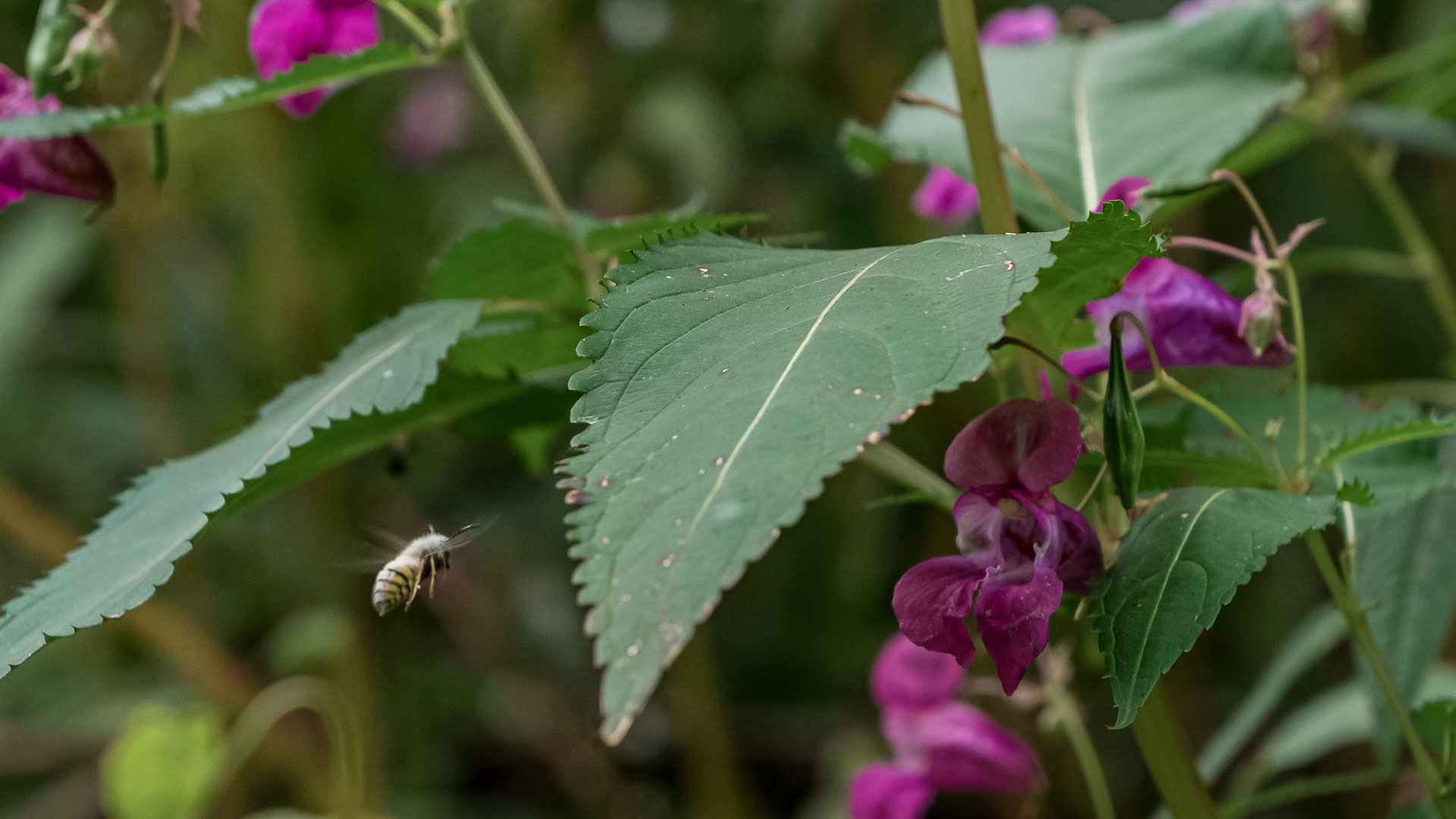Invaders of the National Park
Bev Lewis
Invasive Non-Native Species Co-Ordinator Bannau Brycheiniog (Brecon Beacons) National Park
We are working with a range of organisations, landowners, community groups and the public to address the issues of invasive non-native species within the National Park.
Invasive non-natives can be really damaging to our native wildlife and habitats; by working together to remove these invaders we can help recover wider ecosystems.
We are focusing on species including; Japanese knotweed, Himalayan balsam, rhododendron and cherry laurel. We have worked predominantly in the River Usk catchment as that is where the majority of invasive species have been recorded, but we also work on other species within the National Park.
A Growing Problem
Invasive Non-Native Species are one of the biggest threats to biodiversity. Whilst most people are aware of habitat loss and fragmentation as the number one cause they are less aware of how much of an impact invasive species have on biodiversity, people, the economy and human health.
There are already a large number of non-native species in Britain and the number becoming established is likely to increase due to the growth in world trade and global tourism. Climate change may also allow species that are currently benign in Britain to become invasive.
What Project Success Would Mean
We would like to see people with greater awareness regarding the threat to biodiversity from invasive non-native species and as a result of that an improvement in their bio-security practices to prevent new invasions.
That would mean that any new invasive species would be noticed, recorded and managed early before they were at risk of becoming long term problems. It would also mean that existing invasive species problems would be under active management.
Our Actions
‘Prevention is better, cheaper and more efficient than the cure’ – we want people to be really aware about invasive species, to take bio-security precautions and to help us with recording new and existing invasive species. We will be looking to get some of the invasive species that have already established themselves under a plan of management, in a coordinated sustainable way.
This work cannot be done alone, it must be done in partnership in a joined up coordinated way with long term impetus behind the project. Y Bannau: The Future provides the overarching framework which helps join up the dots for us all.





